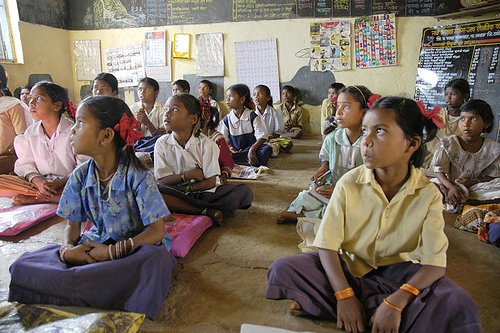Indian education system is one of the most ancient and robust institutions in the world. Starting from the world of Gurukuls and Guru Syshiya parampara (the tradition of the sacred relationship between the Teacher and the seeker or the student), there is a lots of inspiration that we can draw from such ancient traditions. However, looking at the kind of decline in the fortunes of India as a nation, which she suffered at the hands of her colonial master, the United Kingdom, the state of the Indian education system went on a huge decline. The sacred relationship between the teacher and the student was diluted and there was a huge decline in the quality of the education imparted. Education became sparse and illiteracy and poverty took hold. However, it is to be noted that the reformers such as Swami Vivekanand and Raja Rammohan Roy, that spearheaded the Bengal renaissance made huge inroads in letting the Indian students adapt to a changed world reality where the usage of the English language became the norm.
Increasingly, the Indian nation began to feel the punch as it began to notice that each and every activity on the world stage and primary ones such as scientific research, international communications and trade and commerce began to be conducted in the English language while the populace of the country was hugely inadequate to learn the language and this was not imbedded in their cultural systems and ethos.
However, after independence things began to change and under the leadership of our learned Prime Minister Jawaharlal Nehru, huge strides began to be made in the realms of higher education and setting up of universities such as the Indian Institutes of Technology that began to impart quality education. However, the Indian authorities began to face huge problems in imparting primary education to its vast illiterate population and which did not have the means and the support to conduct themselves and emancipate themselves by education.
At the turn of the millennium, and in the first decade of the twenty first century, Indian authorities introduced the right to education for the masses making getting a primary education a fundamental right for its citizens. However, while the intent of such schemes was good, the implementation is a huge challenge. Even in the realm of higher education, leave aside the developed west, India’s competitors such as China are spending more and more on higher education and cutting edge research while India is lagging behind the same. In order to counter this, the Indian authorities need to reinvent their right to education bill and also spend more amount on higher education and research. In other words, the robust Indian education system needs to reinvent itself.
In order to strengthen the education system, the Indian establishment needs to eliminate corruption at the lowest rungs of the government machinery, for I am sure that while millions of dollars are being spend by the central governments and the state governments combined, there needs to be a proper plugging mechanism where the tax payers money is not just meant for filling the pockets of greedy government officials and private contractors, but the tax payers money is spend prudently on schemes such as the mid-day meal scheme, encouraging the education of the girl child and implementing the right to education in both letter and spirit. The third objective, implementation of the right to education in both letter and spirit requires policy level changes at the ministry of human resources development level and also at the state government level.
We as a society should abhor and reject illiteracy, for illiteracy is the root of inequality and it encourages evils like exploitation, corruption, crime and population explosion that is linked to a lower quality of life and degradation of the environment. When we as a civilized society rise up to such challenges and recognize that making each and every disempowered soul literate, we do half the work for providing a way and means through which disempowered sections of our society are able to take advantages of legislative support like reservations, the trickling down effect of the labors of our governments would bear fruition. As individuals, we should encourage and participate in mass literacy drives and lend our support to the governments elected by us in whatever way we can. By abhorring the evils of illiteracy, corruption and inequality and just distribution of resources, we can create favorable conditions for the establishment of a just, civilized, equitable and a terror free society.

 Spreading literacy is key for the creation of a just and an equitable society.....
Spreading literacy is key for the creation of a just and an equitable society.....
Leave A Comment